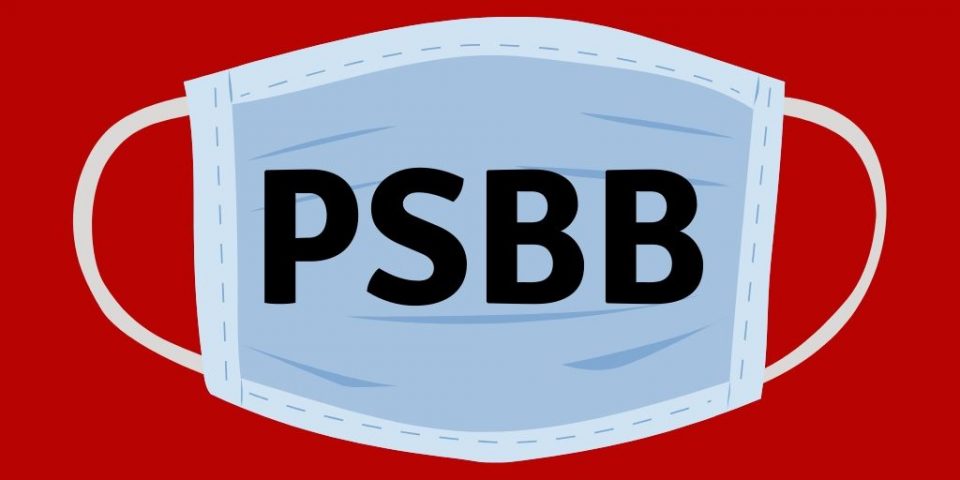The Governor of DKI Jakarta, Anies Baswedan, has today announced that the Coronavirus Disease Response Acceleration Task Force and Provincial Government of DKI Jakarta have decided to extend the large-scale social restrictions (PSBB), with June being established as a transitional period.
“This decision is based on the remaining areas that are still red, while also making the transition from massive social restrictions to healthy and safe conditions. We want to return a city that is safe and healthy, where the people can do socio-economic activities again,” Anies said.
During the transition period, June will be phase one in which activities that benefit the community will be slowly reinstated, said Anies. Only healthy people will be allowed to conduct activities outside of their homes.
All activities will only be able to work at 50 percent capacity to allow for social distancing and masks are compulsory with a fine of Rp250,000 being levied for those not wearing one. Elderly people and children are still being encouraged to stay home.
“If this transition period doesn’t show signs of stability throughout June, the provincial government and the task force will not hesitate to stop all activities again,” Anies said.
The governor went on to detail the following protocols that will be in place during the transition:
- At home, everyone should wash their hands after any outdoor activities, guests should be limited, and transport should be primarily on foot or by bicycle.
- Schools will remain closed until it’s deemed safe to open, regardless of the new academic year that’s due to start 13th
- Offices can only have half of the employees of the company present at any one time. Companies will need to adapt arrangements to facilitate two shifts, for example, so workers can maintain a safe and healthy distance from each other.
Anies went on to say that socio-economic activities still need to implement a one-metre distance between people, allow for frequent hand washing, and only fill spaces to 50 percent capacity. Resumption of activities will be on:
Friday 5th June: Religious sites and activities, as well as museums and outdoor sports, can open following strict health guidelines
Monday 8th June: Businesses, individual restaurants, and shops that aren’t in shopping centres, and offices can reopen
Monday 15th June: Shopping centres and markets can reopen
Saturday 20th June: Recreation parks can reopen
Regarding public transportation, Anies said MRT and Transjakarta will operate on a normal schedule but will still be limited to 50 percent of the vehicle’s capacity. Meanwhile, families wishing to travel by car or motorbike don’t need to adhere to the 50 percent capacity rule.
Anies concluded that the reproduction, or R, value of the coronavirus in Jakarta has continued to drop until steadily reaching 0.99 in the beginning of June. “The R value has dramatically dropped from the R value in March, which was 4. As long as the R value is below 1, we can consider the virus under control and can continue decrease,” Anies said.
Indicators of easing social restrictions which helped on determining Jakarta’s status to reclaim normalcy were also discussed by the governor. The experts divided the considerations into three sections: epidemiology, public health, and health facilities.
“In March until mid-May, Jakarta was still red and continued to be in yellow. But two weeks ago, the total of those three indicators showed green. As you can see today, the total is 76. This means social restrictions can be relaxed,” Anies said.
However, Anies pointed out that 66 neighborhoods (RW) in the capital still have incident rates that still need to be given a special focus. Therefore, these neighborhoods still have to follow strict health protocols such as working and studying from home, as well social and economic activities remaining closed under the Application of Tight Control Areas (WPK).
“Please stay disciplined as we enter the PSBB transitional period,” Anies said.
Source: Kompas TV
Image credit – Ayobogor.com




